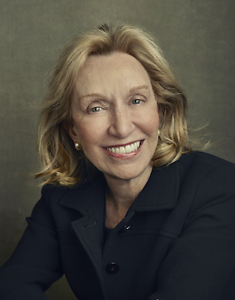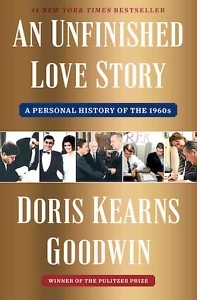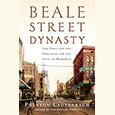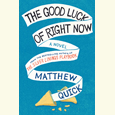A Marriage of History and Romance
Historian Doris Kearns Goodwin offers an intimate perspective on a dramatic decade
The historian Doris Kearns Goodwin introduces An Unfinished Love Story as the result of a chore she and her late husband, the writer and political strategist Richard Goodwin, finally tackled after his 80th birthday: surveying 300 boxes of his papers and memorabilia from that vital and tragic American decade, the 1960s.

Dick Goodwin’s souvenirs are lofty artifacts — affectionate notes from Jacqueline Kennedy, photos of him hanging out in the White House with Presidents John Kennedy and Lyndon Johnson, drafts of such seminal speeches as the debut of Johnson’s “Great Society,” notes to Robert Kennedy about why he should run for president, a cigar box from Che Guevara. Subtitled “A Personal History of the 1960s,” Love Story surveys Richard Goodwin’s work with a decade-defining cast of characters known in the collective shorthand of a nation as JFK, LBJ, Jackie, and Bobby.
But it’s also the author’s story. At a time in the late ’60s when Richard Goodwin was saying goodbye to all that, Doris Kearns, more than a decade younger, was coming into her own. While a graduate student at Harvard, she was chosen for a fellowship in Johnson’s White House. LBJ was drawn to her gift for providing frank opinions, and as his confidante, she became the avatar for the “Harvards” he wanted to win over.
The Goodwins were present for such crucial events as Martin Luther King Jr.’s 1963 March on Washington and the 1968 Democratic National Convention in Chicago that erupted in violence, but they didn’t meet until they had offices in the same building at Harvard in 1972. Their public roles were complementary. He actively influenced his “great men” through advice and speechwriting; her behind-the-scenes role as an observer and trusted friend led to her blockbuster first book, Lyndon Johnson and the American Dream. (In some editions, the book has a subtitle of nearly biblical praise: “The Most Revealing Portrait of a President and Presidential Power Ever Written.”)
 The author of such essential popular biographies as The Bully Pulpit, Team of Rivals, and No Ordinary Time: Franklin and Eleanor Roosevelt, which won a Pulitzer Prize for history, Doris Goodwin writes that the impetus for her new book was to address a “fault line” in the Goodwins’ union of more than four decades. Kennedy was his hero; Johnson was hers. “Tremors from this division ran through our marriage, at times provoking tension as I repeatedly insisted that the great majority of Kennedy’s domestic promises and pledges found realization only under Johnson, while Dick repeatedly countered that Kennedy’s inspirational leadership had set a tone and spirit that defined the decade,” she writes.
The author of such essential popular biographies as The Bully Pulpit, Team of Rivals, and No Ordinary Time: Franklin and Eleanor Roosevelt, which won a Pulitzer Prize for history, Doris Goodwin writes that the impetus for her new book was to address a “fault line” in the Goodwins’ union of more than four decades. Kennedy was his hero; Johnson was hers. “Tremors from this division ran through our marriage, at times provoking tension as I repeatedly insisted that the great majority of Kennedy’s domestic promises and pledges found realization only under Johnson, while Dick repeatedly countered that Kennedy’s inspirational leadership had set a tone and spirit that defined the decade,” she writes.
They agreed to abandon their prejudices and open his archives with a clean slate. “As we shook hands, we both burst out laughing.”
What emerges in Love Story is a sense of the balance of their personal relationship and, on the national level, the symbiosis of the two administrations they championed. Kennedy proposed the Civil Rights Act to Congress, for instance, but after he was assassinated in 1963, it was Johnson who took it through Congress. Kennedy’s idealism was consummated by Johnson’s pragmatism. This is an accessible primer on the two great politicians of an era when the Peace Corps, the Voting Rights Act, Medicare, Medicaid, and the Fair Housing Bill all came into being.
Offbeat insider details give the book its singular charm. One of Dick Goodwin’s stories, filed in the index under “White House skinny dip,” recalls him and Bill Moyers trailing Lyndon Johnson in the pool, all three of them nude, as the president “held forth about where he hoped to take the country….”
Kearns Goodwin remembers a call she got from Johnson while she was in Chicago for the 1968 Democratic convention, when she was a White House fellow and he a lame-duck president. He phoned her hotel on the pretext of asking where she left his flashlight when she last visited his Texas ranch. It was his 60th birthday and his unpopularity because of the Vietnam War made him non grata at the big national party. She asked how he was; he answered, “I never felt lower in my life.” Later, when she spent time at his ranch while helping him with his memoir, she would read in a chair in his room while he took his afternoon nap because he “could not bear to be alone.” It’s a detail that becomes more poignant when she writes of his fatal heart attack in 1973: “He had been taking a nap and was alone.”
A colleague in the Johnson administration called Dick Goodwin, who died in 2018, “the most skilled living practitioner of an arcane and dying artform, the political speech.” Kearns Goodwin mourns the loss of a nation’s political innocence. “For unlike today, the Sixties were still a time when a candidate’s word represented a commitment to a prescribed course of action. What one said mattered. If one reneged on that word, a future time of reckoning would be waiting.”
As Che Guevara noticed, Dick Goodwin loved cigars, and his wife seems to have lived in a fog of cigar smoke up to the last year of his life. He memorized Lincoln’s “Farewell Address” and passages from Shakespeare and Emerson. “Whenever he saw fit, Dick would draw from his wide and eclectic repertoire and declaim in his sonorous voice — whether at the ballpark, on walks with me, at our favorite bar, or simply waking up in our bedroom to greet the day.” A union that survives that test is a true one.

Formerly the arts and culture editor for The Daily Memphian, Peggy Burch previously was books editor at The Commercial Appeal in Memphis. She holds a master’s degree in English literature from the University of Mississippi.


